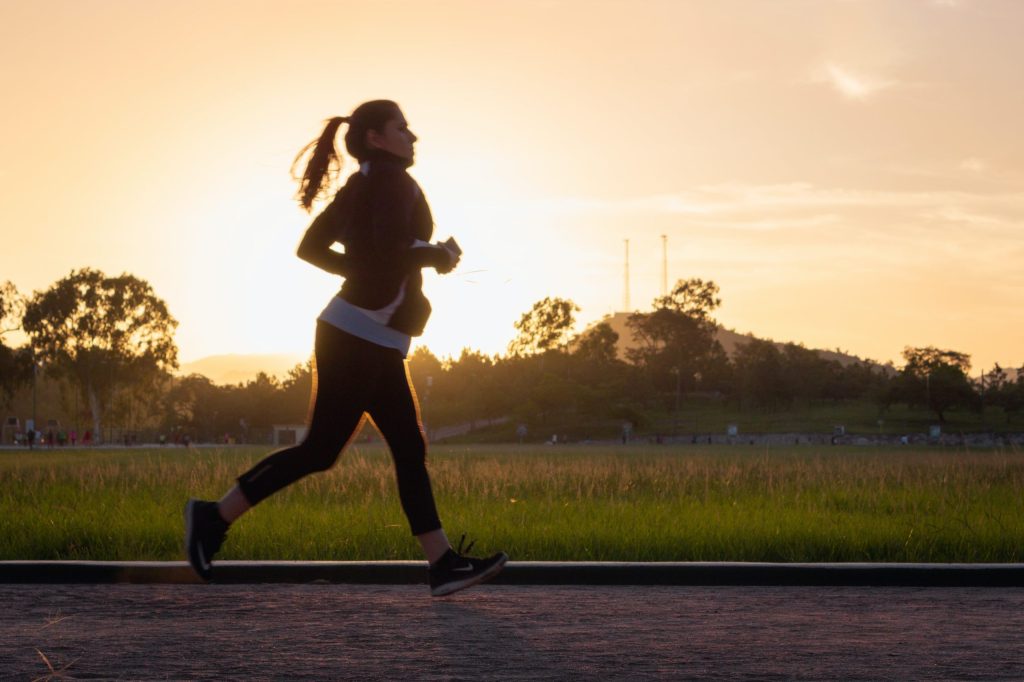Eliza Fletcher was abducted and murdered on her morning run last Friday. The mother of two young boys was up at 4:30 a.m. to squeeze in a workout before a hectic day of prepping her kids for school and teaching kindergarten.
Many working moms understand why Fletcher was out running so early. There was probably no other time in her day to do it. Many runners understand why she was running in the dark. Training takes time and discipline, so pre-sunrise hours are popular to get in necessary miles. Fletcher was a serious runner who had qualified for the Boston Marathon and was heavily involved in the running community online.
A chilling video image of Fletcher, dressed in purple shorts and a pink sports bra just before the abduction, left female runners nationwide gripped with fear. But rather than reminding women to heed their own safety, online conversations turned to messages of irrational idealism.
As one viral social media post said simply:
Stop talking about her running at 4:30 AM.
Stop talking about her running at 4:30 AM.
Stop talking about her running at 4:30 AM.
Stop talking about her running at 4:30 AM.
Stop talking about her running at 4:30 AM.
She should’ve been able to run whenever, wherever she wanted.
To silence concerns that this occurred at 4:30 a.m. in the dark is unwise and irresponsible. It’s the same mentality that claims we shouldn’t tell girls not to drink too much at parties because they could get sexually assaulted or raped. No one is to blame but the rapist — or the murderer — in these situations, but we should always set women up for safety, not susceptibility. Not talking about necessary safeguards will lead to more tragedy.
Women must practice precaution and personal responsibility for their own safety — no matter how unfair it may be. Sadly, evil is ever-present and it’s no surprise that it often surfaces in the dark when it’s less easily detected. As women, we are more vulnerable. That’s not fair and it’s not okay, but it is true. Like any creature, we must adapt to survive, and self-protection is our first defense.
This is not victim-blaming. It’s realism. According to Runner’s World, 60 percent of women have been harassed while running, yet 54 percent of women in the same survey say they still choose to run in the dark. A writer at SELF magazine declared that, rather than focusing on how women can keep themselves safe, “attention should be focused on ending gender-based violence.”
We’d all like to end gender-based violence, but that’s not a practical point for women who plan to go running tomorrow. Eliza Fletcher didn’t make herself a target. Being a woman meant she simply was one. Like it or not, it’s not safe for women to run alone in the dark. When I expressed this sentiment on Twitter, someone retorted that since female runners have also been murdered during daytime hours, “we should just plan to never exercise then?”
But bitterness and denial are unhelpful. We don’t let our small children play alone outside because not all people are trustworthy. We turn on alarms at night in our homes to prevent break-ins. We submit to bag checks and airport scans in hopes that we remain safe during a flight. In a perfect world, we wouldn’t have to do these things, but we do them because they’re necessary.
Maybe it’s inconvenient and annoying to run with a buddy or on the treadmill, but women should do it anyway. As a former marathon runner, I frequently put in long runs of up to twenty miles that started before dawn. Yet even though I lived in a populated area, I always ran on the treadmill until the sun came up. When the streets were safely lit, I grabbed my phone and a small keychain of mace and took off on a well-worn route.
Eliza Fletcher didn’t deserve to die. She should have been able to run at 4:30 a.m. and come home to her babies, feed them breakfast, stress out about getting their teeth brushed, and rush out the door to a job she loved. But she didn’t get to do that because we live in a fallen world.
On Friday September 9, thousands of her community members gathered for a pre-dawn run to honor Eliza’s memory. As we work to end gender-based violence and raise men of character, I hope every woman will empower herself with self-protection. Perhaps with these combined efforts, we can avoid seeing a headline like this one ever again.


















